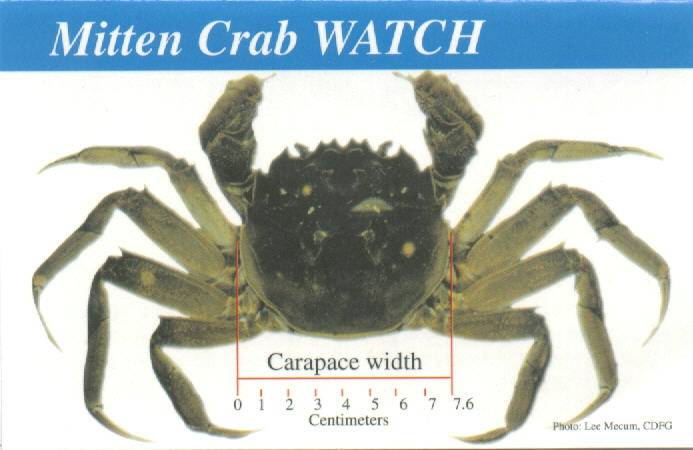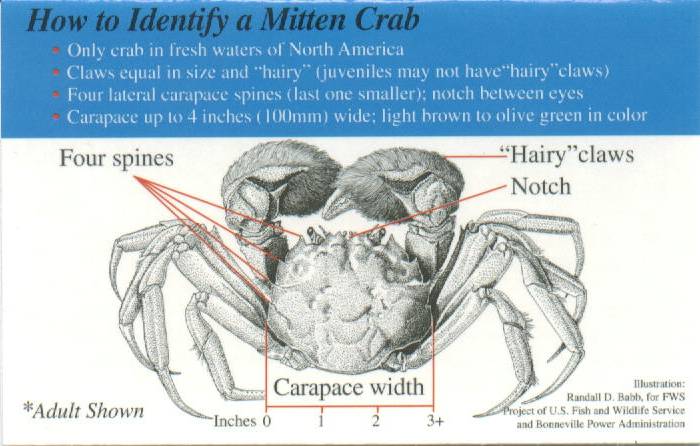|

Mitten crabs may pose a serious threat to the freshwater, estuarine and marine ecosystems and economy of the West
Coast. First discovered in San Francisco Bay in 1992, they spread to the Sacramento and San Joaquin rivers where massive migrations
clog fish screens and hamper water delivery. One mitten crab was found in the Columbia River in 1997. Mitten crab burrows
weaken levees and increase bank erosion. They can eat salmon, trout, and sturgeon eggs and may threaten successful spawning.
Juvenile crabs also damage rice fields. These crabs can carry the oriental lung fluke, a threat to human health. Native to
Asia, mitten crabs live in freshwater but migrate to saltwater to reproduce and are easy to identify because they have hairy
claws (other identification traits on back of card). Often, recreational anglers or commercial fishermen are the first to
discover the mitten crab because they commonly steal bait from anglers or are caught in commercial nets.

Your help is vital to report new sightings and to prevent their spread.
if you catch a mitten crab,
* Do not throw it back alive!
* Preserve it in rubbing alcohol or freeze it.
* Note
the precise location where the crab was found.
* Contact your local natural resource management agency:
In Alaska, call the Fish and Wildlife Service (907-262-9863); in British Columbia, call Fisheries and Oceans (604-666-6529);
in Washington, call the WA Department of Fish and Wildlife (360-902-2200); in Oregon, call the OR Invasive Species Hotline(866-468-2337,
toll free); in Califomia, call the CA Mitten Crab Hotline (888-321-8913, toll free).
REMINDER:
Know the rules!
Mitten crab specimens are needed to confirm sightings, but many
jurisdictions have different possession and transport mles. Contact your local natural resources agency for instructions.
Never transport live mitten crab.
|

